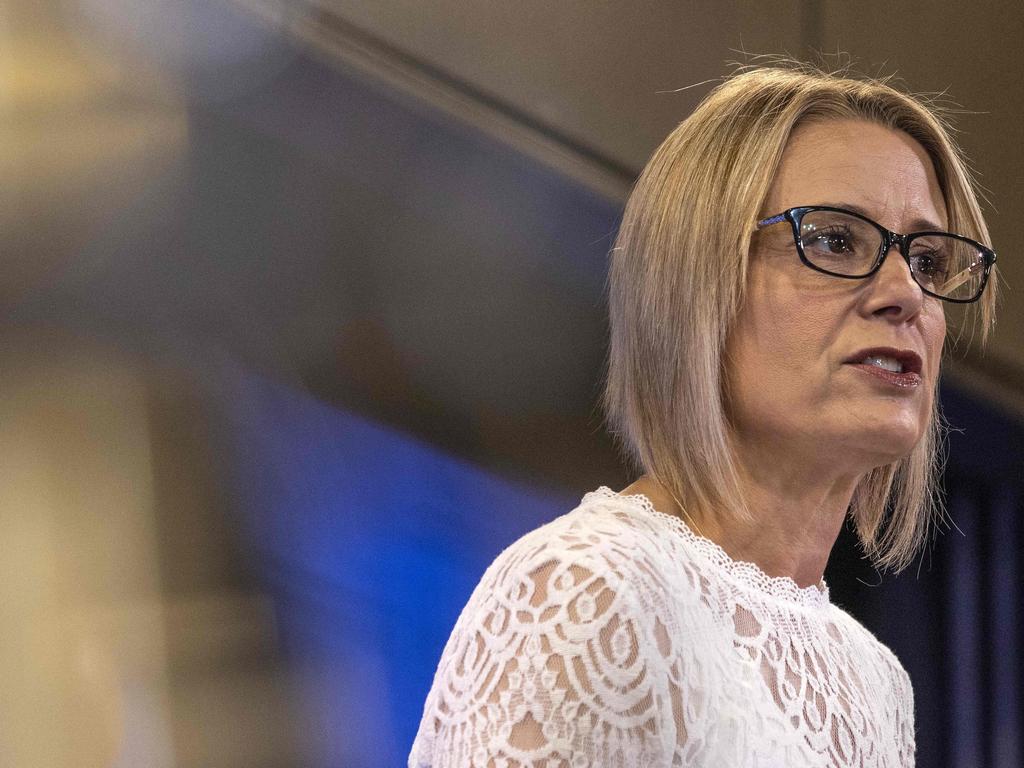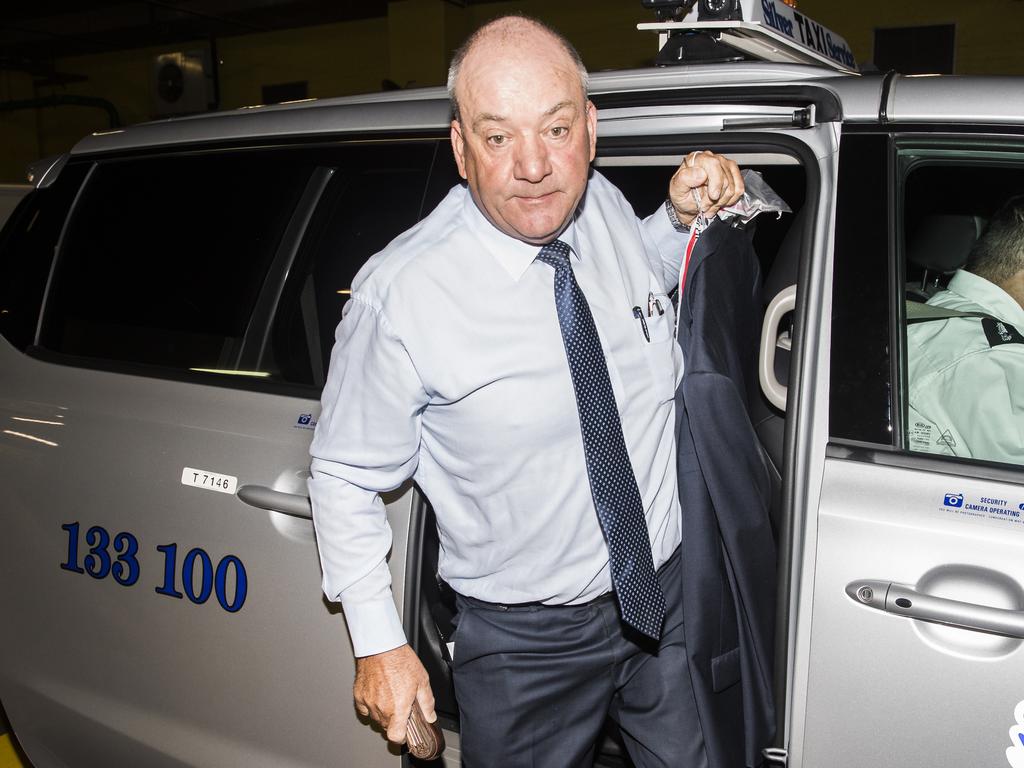‘Vanishing act’: Kristina Keneally slams Scott Morrison over COVID quarantine
Scott Morrison has performed a ‘vanishing act’ during the COVID-19 pandemic, an outspoken Labor frontbencher says.

Scott Morrison has gotten away with a “vanishing act” during COVID-19 by “pulling the wool” over Australians’ eyes, Labor senator Kristina Keneally says.
Ms Keneally made the comments during a wide-ranging appearance at the National Press Club on Tuesday, her first major speech since becoming Labor’s first opposition spokeswoman for government accountability.
She accused the Prime Minister of “abandoning” the nearly 40,000 stranded Australians who he had promised to bring home from overseas by Christmas.
She claimed Australians would “remember the absence” of the federal government when looking back on the crisis.
“The great vanishing act of Scott Morrison during this COVID crisis is extraordinary,” she said.
RELATED: Daniel Andrews slams vocal Australian Open players amid hotel quarantine debacle


“He has pulled the wool over the eyes of the Australian people and tried to pretend the quarantine suddenly has nothing to do with the federal government.
“If you want to bring a horse into Australia, it goes into a federal quarantine facility. If you are an Australian wanting to come into Australia, Scott Morrison has washed his hands of you.”
The quarantine system has been a bone of contention between federal and state governments, with Queensland Premier Annastacia Palaszczuk pushing for quarantine to move outside of major cities.
Ms Palaszczuk argued moving facilities to regional areas would prevent COVID-19 from rapidly spreading after quarantine workers tested positive in Western Australia and Victoria.
She was opposed by NSW counterpart Gladys Berejiklian and Mr Morrison, who both said last week the quarantine system had worked effectively.
Mr Morrison revealed the commonwealth was in talks to potentially double capacity at Northern Territory’s Howard Springs quarantine facility on Friday.
He said expanding the existing centre would be “far more effective” than opening new regional facilities.
Opposition Leader Anthony Albanese has tasked Ms Keneally with honing in on a series of government expenditures, including the so-called sports rorts scandal.

Ms Keneally claimed the saga was “no one-off”, arguing Mr Morrison failed to sanction scandal-ridden ministers.
“Every dollar funnelled into dodgy land deals, sports rorts and splashing cash on executive bonuses for Liberal mates is a dollar that can’t be used to help rebuild the Australian economy after a recession,” she said.
“When voters’ cynicism grows, politicians like Scott Morrison flourish.
“It is much easier for a politician like Scott Morrison to serve his own political purposes if Australians have low expectations and cynical views of their government.”
But Ms Keneally pledged an Albanese government would shed “sunlight” on corruption, reiterating Labor’s call for a federal Independent Commission Against Corruption (ICAC).
The Coalition’s plan for a federal ICAC included a narrow definition of corruption and would not mandate public hearings or give the watchdog the power to initiate inquiries.

Ms Keneally dismissed the proposal as toothless and advocated a beefed-up watchdog.
“All the Morrison government has produced is a draft bill for a weak, secretive and compromised commission that would cover up corruption, not expose it,” she said.
Former NSW Premier Barry O’Farrell was forced to resign over contradictory evidence about a $3000 bottle of wine uncovered by the watchdog in 2014.
Current NSW leader Gladys Berejiklian was compelled to front the NSW ICAC in October when she revealed she had a “close personal relationship” with disgraced ex-NSW MP Daryl Maguire.
Ms Keneally claimed an ICAC’s ability to hold public hearings was “a key part” of community trust in the process.
But she would not be drawn on whether Labor would back the government’s plan before the election but advocate a stronger watchdog if it won office.
“Welcome to the life of the senator. That is constantly the judgment you have to make and why I don’t want to give a firm decision in the absence of a concrete piece of legislation,” she said.



